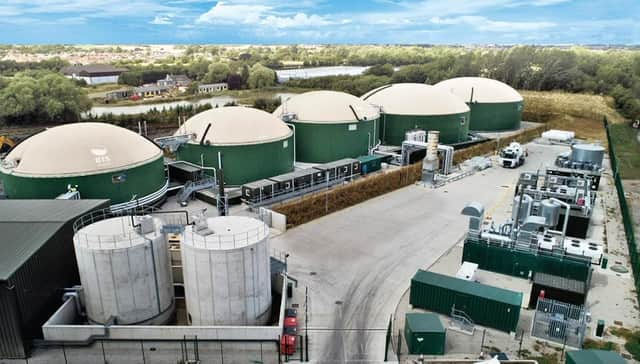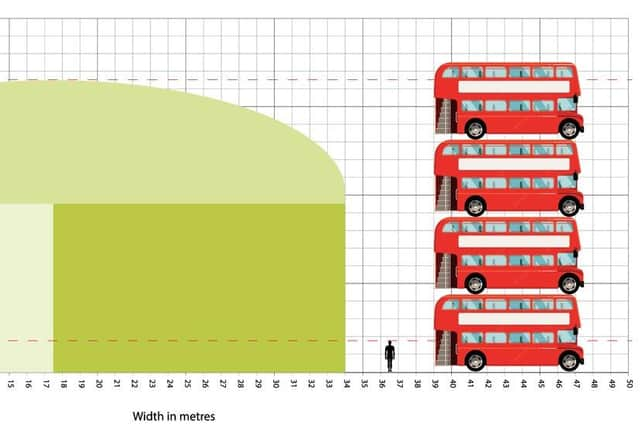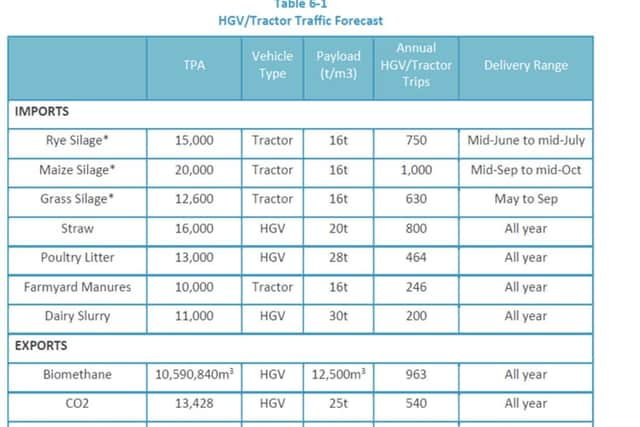Banbury to be tanker 'hub' for four giant anaerobic-digesters - protesters describe the plan as 'greenwashing'


If plans by Acorn Bioenergy are accepted, tankers would bring millions of cubic metres of bio-methane gas from surrounding districts, along country roads, through villages into Banbury to be deposited into an injection hub.
The routes are described by the company as a ‘virtual pipeline’.
Advertisement
Hide AdAdvertisement
Hide AdResidents around Tysoe have launched massive opposition to a plant on farmland off the Stratford Road.


Now householders at Evenley, Croughton, Brackley, Farthinghoe, Charlton and other villages have united against a similar plan off the A43. Applications have also been put in for plants at Witney and Long Crendon, Buckinghamshire all of which would transport gas to Banbury.
A petition calling for rejection of the Evenley plan has been published. Acorn – recently been bought out by a Spanish company – is keen for readers to visit its website www.acornbioenergy.comto see more about its plans.
Objectors describe the plan as ‘greenwashing’ and say millions of pounds in government funding would leave the country for the company owners in Spain while their area would suffer pollution and disturbance from gas production.
Advertisement
Hide AdAdvertisement
Hide AdEvenley Parish Council said: “Acorn would import 97,600 tonnes of silage, rye maize and grass, poultry litter and dairy slurry per annum.


“This would undergo anaerobic digestion which produces biogas, upgraded to biomethane (which) would be removed by lorry to Banbury.
"It is expected to produce 9,000,000 cubic metres of biogas per annum. As a by-product, it will produce a soil conditioner and liquid fertiliser which can be used on farmland. Liquid CO2 will also be produced (approximately 13,000 tonnes) and transported by lorry to end users.
"Most plants in the UK process about 35,000 tonnes of material per annum. The UK’s biggest is in Staffordshire, on a pre-existing landfill site and processes 120,000 tonnes of food waste.
Advertisement
Hide AdAdvertisement
Hide Ad"Acorn’s plant in Evenley will process 97,600 tonnes on a 15-acre site. The digestate tanks would be up to 17.5m high (over 57ft). The gas flare stack would be 8.7m high. The straw building would be 67.1m long, 155.1m wide and 7.16m to the ridge. This would make it one of the largest in the UK.
"To produce enough maize to fuel this would require nearly 7,000 acres of farmland. 1,250m3/h of biogas will be removed each day delivered by tanker to Banbury.”
The parish council said the government no longer wants to incentivise small-scale, private power generation because it has enough renewable energy from solar, wind and existing AD plants.
"So small and medium-scale digesters are no longer money-making propositions. The government’s Green Gas Support Scheme (GGSS) will financially support bio-methane to gas production. Bio-methane is as pure as natural gas and can be injected straight into the grid or used for transport and the government is keen to encourage its production. This means the GGSS has led to an upturn in development of larger plants capable of producing biomethane for the grid.”
Advertisement
Hide AdAdvertisement
Hide AdThe parish council said there would be about 4,090 HGV incoming and 4,293 outgoing tractor trips to and from the plant every year - 54-62 movements a day, peaking at 134 HGV/tractor movements in peak periods for two weeks in June\July and September\October, an annual increase in traffic of approximately 68 per cent.
"Much would be slow moving tractors and trailers and HGVs on and around the already congested A43,” said the council. “It will employ up to five people.”
One Astwick resident said: “At a presentation at Croughton village hall on October 4, the Acorn panel of two, plus a PR advisor, were in 'transmit only' mode, failing to display an ounce of empathy.
"They did not recognise genuine concerns of residents, including dangers of the certain increase in heavy traffic through Croughton and along the A43, and failed to acknowledge local accident blackspots, countering sincere arguments with a weak and unenforceable promise to 'make sure' vehicles delivering the tons of 'fuel' to the AD plant would be advised not to drive through the village.
Advertisement
Hide AdAdvertisement
Hide Ad“At an earlier presentation in Evenley in June, I asked Acorn executive Charlie Lywood what mitigation measures there were for the offensive odours produced 24 hours a day. He said his own home is 500 metres from a similar plant and he 'has become used to the smells.'
"It's reprehensible that residents should be expected to just 'get used' to something so atrocious in and around the homes they've occupied for many years.”
The company said: “Acorn Bioenergy will be operating two HGVs and one spare to transport bio-methane from multiple anaerobic digestion ‘spokes’ to the Banbury hub for injection into the National Grid.
"These HGVs will make a combined total of nine deliveries of green, domestic bio-methane to the injection point each day and we have planning permission secured.
Advertisement
Hide AdAdvertisement
Hide Ad"These deliveries are not affected by peak harvest times as biogas is continuously generated at each spoke. This method is a tried and tested technology with several thousand trailers currently in operation.
"All HGVs and associated equipment will operate in full accordance with the relevant regulations. Acorn Bioenergy will be a crucial part of the UK’s transition to net zero whilst improving sustainable farming and delivering national energy security.”
Oxfordshire County Council has not been consulted and said it would respond to any consultation if asked.
Cherwell District Council did not confirm a planning consent for Acorn and said: “We are actively engaging with the three neighbouring planning authorities with a view to providing consultation responses in due course.”